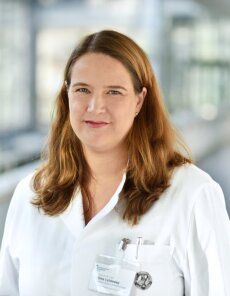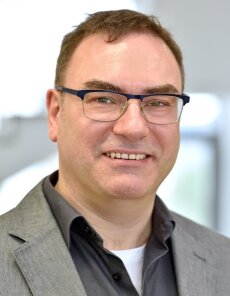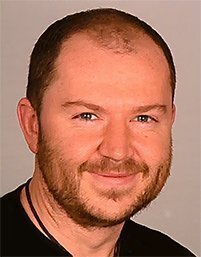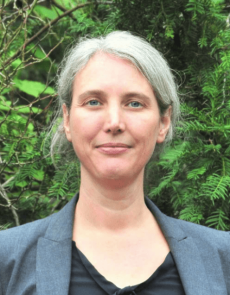
- Light
Published:
The fight against infection-related inflammatory diseases is of great importance to mankind and requires novel strategies for effective and safe pharmacotherapy. Current approaches to the medication of inflammatory diseases suffer from limited biocompatibility and organ specificity of available drugs and are often associated with serious side effects. The CRC PolyTarget is now receiving funding from the German Research Foundation for a second 4-year phase and continues to work on innovative approaches to overcome these hurdles. The consortium is pursuing the long-term goal of developing cell-type-specific polymeric nanoparticles as drug carriers that selectively intervene in the various stages of inflammatory processes associated with infectious diseases. Newly developed drugs encapsulated by tissue-specific nanoparticles will thus enable local and systemic inflammatory responses to be resolved and distant organs to be protected.
In the second funding period, successful projects will be continued and strengthened with new project leaders, but also completely new projects could be included. In the new subproject C06, nanoparticles loaded with CRISPR / Cas complexes will be used to specifically regulate the immune response in liver diseases. Claudia Waskow's expertise in the field of stem cell research in mouse models will contribute a crucial step towards an application in humans. Sina Coldewey will use the developed concepts in subproject A02 for studies on hemolytic uremic syndrome (HUS), which can lead to acute kidney failure. Research on the treatment of intestinal inflammation with polymeric nanoparticles (subproject A05) is now supported by Alexander Mosig. With the development of microfluidic systems (organ-on-a-chip), human organ functions can be intensively studied in the model.
The translation of the specially adapted nanoparticles will be implemented in the recently approved transfer project T01 with project leaders Ulrich S. Schubert, Michael Bauer and Sina Coldewey. Dye-labeled nanoparticles for the targeted release of inhibitors in the kidney, which play a role in the treatment of infections, are being investigated in cooperation with SmartDyeLivery GmbH. The transfer project is thus developing important findings for the production of the nanoparticles under GMP conditions for future clinical studies.
The current pandemic situation clearly shows the importance of inflammatory reactions, which can also be caused by viruses, among other things. PolyTarget is working in the newly established project area "Viral" on solutions to better understand and treat viral-caused infections in order to be well prepared for current and also future pathogens. In D01, Christian Eggeling, Michael Bauer and Ulrich S. Schubert are modifying nanoparticles so that they have the same cellular uptake mechanisms as viruses and can thus optimally release active substances in infected cells. In D02, the experience of Bettina Löffler and Christina Ehrhardt in the fields of bacterial pathogenesis and viral infection models causing severe respiratory diseases (influenza, SARS-CoV-2) is combined and used for the development of nanoparticles for anti-inflammatory and anti-viral agents. The use of novel inhibitors to reduce viral replication is being investigated by Carsten Hoffmann in this project.
The importance of nanomedicine as well as new developments in this field will not only be worked on in research but also brought to the attention of the public. PolyTarget will bring the topic of nanotechnology into school education in the newly installed project Ö01 with Timm Wilke as project leader, in order to achieve basic approaches and an understanding of it already in school education. The aim is to inspire future generations of researchers for nanotechnology.
-
 Prof. Dr. med. Sina M. ColdeweyImage: Michael Szabó/UKJ
Prof. Dr. med. Sina M. ColdeweyImage: Michael Szabó/UKJ -
 Prof. Dr. Christina EhrhardtImage: Michael Szabo, UKJ
Prof. Dr. Christina EhrhardtImage: Michael Szabo, UKJ -
 Prof. Dr. Carsten HoffmannImage: Michael Szabo, UKJ
Prof. Dr. Carsten HoffmannImage: Michael Szabo, UKJ -
 Prof. Dr. Bettina LöfflerImage: Prof. Dr. Bettina Löffler
Prof. Dr. Bettina LöfflerImage: Prof. Dr. Bettina Löffler -
 PD Dr. Alexander S. MosigImage: PD Dr. Alexander S. Mosig
PD Dr. Alexander S. MosigImage: PD Dr. Alexander S. Mosig -
 Prof. Dr. Claudia WaskowImage: Prof. Dr. Claudia Waskow
Prof. Dr. Claudia WaskowImage: Prof. Dr. Claudia Waskow -
 Prof. Dr. Timm WilkeImage: Anne Günther (University of Jena)
Prof. Dr. Timm WilkeImage: Anne Günther (University of Jena)